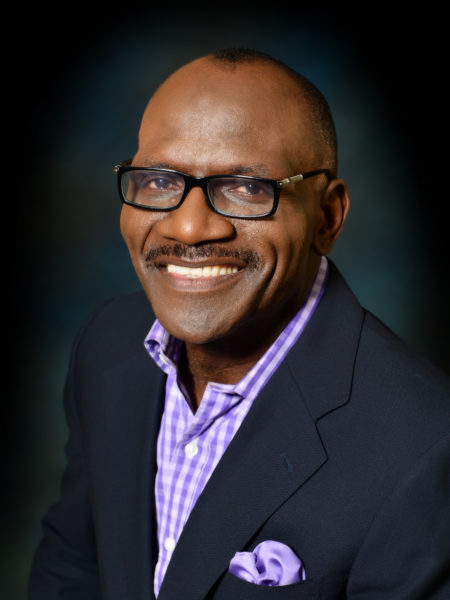Features
Fountain of Life with Taiwo Odukoya: Trust in Marriage
 We’re never so vulnerable than when we trust someone – but paradoxically, if we cannot trust, neither can we find love or joy.― Frank Crane
We’re never so vulnerable than when we trust someone – but paradoxically, if we cannot trust, neither can we find love or joy.― Frank Crane
Trust is the firm belief in the reliability, truth, ability or strength of someone or something. According to Stephen Covey, trust is the glue of life. In his words, “It’s the most essential ingredient in effective communication. It’s the foundational principle that holds all relationships.”
A survey commissioned by Reader’s Digest in 2006 found that trust is the number one factor that people value in their marriages. And trust in marriage is the feeling that your spouse is being honest and not hiding anything. It means, in the main, that you believe your spouse would never intentionally do anything that he or she knows or suspects would make you sad, angry, or hurt, even if he or she knew you would never find out about it.
As John Townsend said, “One of the most wonderful gifts of a loving marriage is the ability to trust your mate—trust that he will be true to you emotionally; trust that she does what she says she will do; trust that he is the same person on the inside that he presents on the outside; trust that she has your best interest in mind. This creates safety, security and a deeper capacity to love. Successful marriages are built on trust.”
The truth is that trust in marriage generates and galvanises confidence in each other that is crucial to working together and being successful in the marriage. It is the sign of a mature, thoughtful, confident and secure relationship.
Trust in marriage will ensure:
- Communication: When there is trust couples can talk about anything and everything, and this is often healthy for the relationship.
- Unity of action: Couples are more able to plan and work together when there is trust.
- Friendship: Marriage thrives more when spouses are friends, and trust for each other makes this possible.
- Compassionand mercy: It easier for couples to forgive each other where there is trust.
- Peace: Often a home where there is peace is one where there is trust.
Trust and intimacy go hand-in-hand.” Without trust, fear rules. Unfortunately, some have problems generally trusting. Experts are of the view that this could be the result of experiences and interactions in the early phases of life, primarily childhood. A person who did not receive adequate nurturing, affection, and acceptance or who was abused, violated, or mistreated as a child will often find difficulty in establishing trust as an adult.
In the same vein, adolescent experiences of either social rejection or acceptance may shape a person’s ability to trust others. For instance, if someone is mocked, teased, or treated as an outcast by his or her peers during the teenage years, this will influence his or her relationships later in life. Being betrayed or belittled by others affects one’s self-esteem, which also plays a significant role in a person’s ability to trust. Basically, those who experience low self-esteem will be less likely to trust those around them than those who are more self-assured.
As an adult, traumatic life events such as an accident, illness, theft of or damage to personal property, or loss of a loved one may lead to issues with trusting others and feeling safe and secure. Being physically violated or attacked, as in the case of rape or assault, is said to likely dramatically impact a person’s trust in the goodness of others. And within a committed relationship, being cheated on or left for another will often lead to issues with trust.
Anyhow one looks at it, a person’s life and marriage can be negatively affected when feelings of mistrust are pervasive, resulting in anxiety, anger, or self-doubt. And signs that a person is excessively mistrustful may include:
- A total lack of intimacy or friendships.
- Several intensely dramatic and stormy relationships in a row or at once.
- Racing thoughts of suspicion or anxiety about spouse, family and friends.
- Feeling of terror during physical intimacy.
- Belief that others are deceptive and malevolent, without real evidence.
The truth is, even in a loving and open spousal relationship, it is normal to experience some paranoia or doubt at some point. Whenever this happens, it is important that you confront your spouse. Whether or not he or she is guilty, you need to clear your conscience and be at peace with yourself. Constant doubts in a relationship have serious and obvious consequences, so you and your spouse have to work together to eradicate these feelings and concerns.
According to Sheri Stritof, a marriage expert who has been married for nearly 50 years, when infidelity, lies or broken promises invade your marriage, the trust between husband and wife is severely damaged. However, this does not mean that the marital relationship cannot be saved. Although rebuilding trust in a marriage can be difficult, when you or your spouse has done something to break that trust, but it is not an impossible task. Here are some suggestions to help rebuild trust:
- Determine to love by letting go of the past.
- Make a decision to forgive or to be forgiven.
- If you are the one in your marriage who lied, cheated, change your behaviours. That means no more secrets, lies, infidelity, etc.
- Together, set specific goals for getting your marriage back on track.
- Renew your commitment to your marriage and each other.
- The wounded spouse must share the pain, while the offending spouse must acknowledge the hurt caused by the devastating experience.
- Listen completely to each other and with your heart, not just your head.
- Be honest.
- Avoid using words that can trigger conflict. Use non-blaming ‘I’ statements and avoid the use of threatening or accusatory words.
- Take responsibility for your own actions and decisions.
- Be open to seeking counselling to have a better understanding into what caused the trust to be broken.
Above all, we need to learn to believe the best of our spouse and not the worst. That means we have to constantly take them to God in prayers and believe God to change them, even when we do not consider them trustworthy. In the words of Andy Morgan, “When we believe the best we narrow the gap and relationships can grow stronger, it doesn’t mean there aren’t consequences and at times discipline, but relationship can remain strong. When we assume the worst we broaden the gap and the relationship weakens.”
May God give us the grace to trust more and also prove ourselves worthy of our spouse’s trust.






















